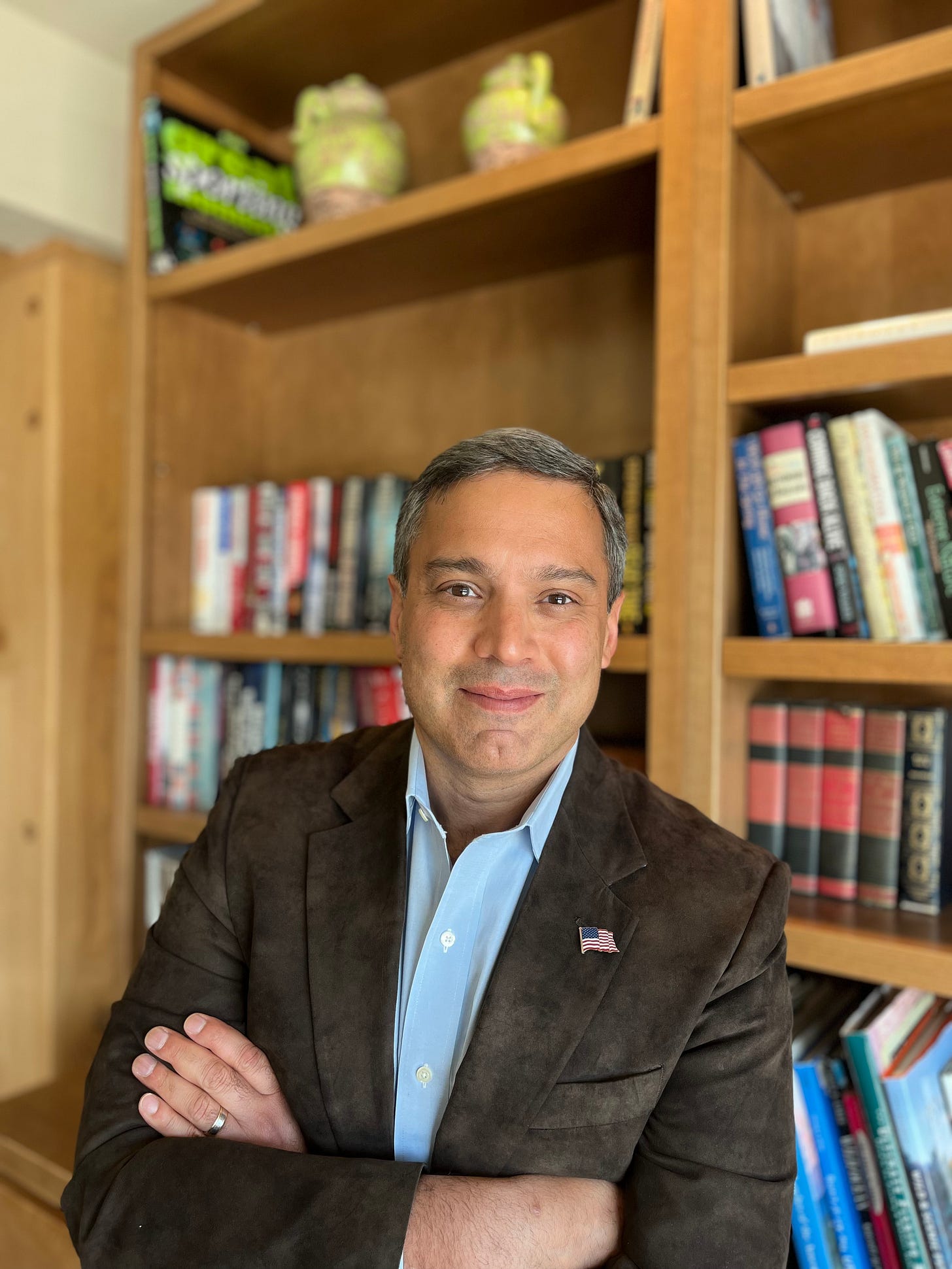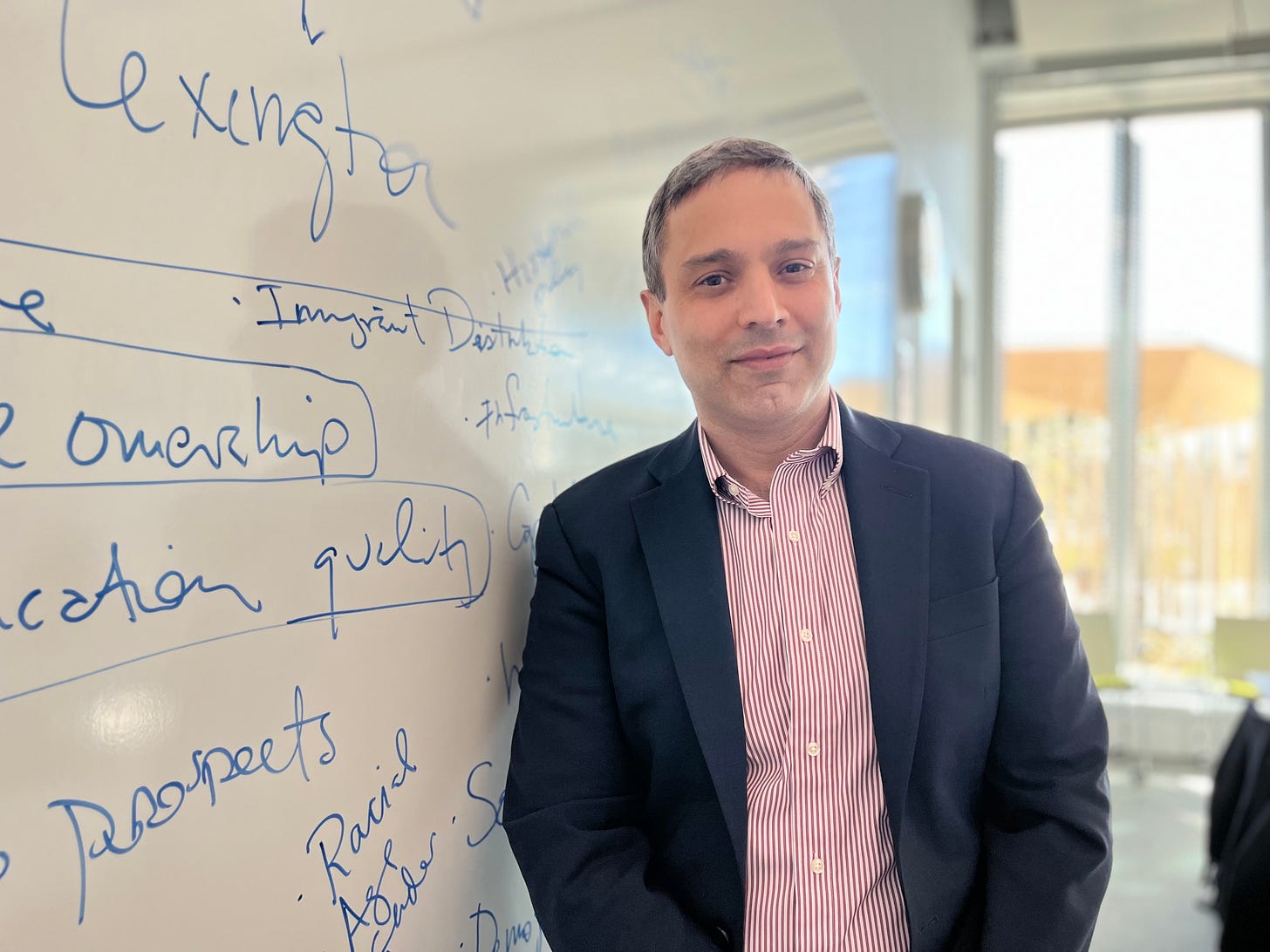My teaching philosophy is organized around a core belief that higher education must teach students to think critically about the information and analysis that they consume. I also have a strong conviction that our increasingly interconnected and complex world demands that tomorrow’s leaders develop an appreciation for context and the “connective tissue” that lies between disciplinary silos. As such, I am a proponent of multi-disciplinary and inter-disciplinary approaches that go beyond reductionist logics that focus on single domains
.
I am personally inspired by how systems thinking approaches that emphasize feedback loops can help students learn to grapple with uncertain, fuzzy, and probabilistic phenomena. In the course of my 25+ years of professional experiences as an investor, consultant, board member and advisor, I have found a generalist approach that emphasizes connecting dots (rather than generating dots) has proven helpful. I bring this experience into the classroom and use it to supplement materials and increase student exposure to relevant and realistic topics.
I believe students learn best when material is presented as engaging and interactive, rather than theoretical or conceptual. As such, I infuse all of my teaching with case studies complete with ethical complexities and force students to grapple with ambiguous decisions. I use classroom discussion to explore the grey area and fuzzy boundaries, nudging students to contemplate the pros and cons of various explanations.
Fundamentally, I seek to make students uncomfortable and to jar them from conventional thinking. I want them to question their own assumptions and to creatively and constructively consider alternative modes of thinking and possibilities. I am explicitly not trying to teach students any answers; rather, I’m trying to teach them how to ask better questions. Student development of meta-knowledge is my ultimate goal.
All of my teaching experience to date has been about complex problems. At Yale, I taught a course on financial booms and busts to undergraduates of various majors. The course considered bubbles via economic, political, sociological, biological, psychological, moral, and cultural lenses and included studies of Tulip Mania, the Great Depression, the Japanese bubble, the Asian Financial Crisis, the Internet Bubble, and the Global Housing Boom and Bust.
I also taught a course on business ethics to Yale undergraduates and MBA students. Students were presented with complex cases that were intentionally chosen to accentuate ambiguity and uncertainty. The protagonists involved in each case were often present as guest speaker in the class, forcing students to grapple with the reality of an actual person who was involved.
Most recently, I have been teaching a course at Harvard entitled “Humanity & Its Challenges: Systems Thinking Approaches.” This course employs a systems approach to considering some of the world’s toughest problems: cases have included the risk of a global pandemic, technology and its impact on jobs, inequality and the threat to capitalism, population dynamics and global food vulnerability, social media and the risks to privacy, energy demands and the environment, and climate change and possible geoengineering solutions.
At the end of the day, I believe that successful teaching transforms a student by giving them the tools to be productive, thoughtful, constructive and informed citizens of our global community. I now have former students of mine that have been out in the “real world” for a dozen years or so. Many have kept in touch; intriguingly, it seems the value of the generalist logic is seen by them as more valuable over time.
Over the course of the past thirteen years that I’ve been teaching, the key elements of my teaching philosophy are as follows:
Reductionist approaches, while useful, confound the study of complex problems. Deep expertise must be balanced with a respect for the context. I have come to believe that every perspective is biased, incomplete, and limited. As such, I believe students that will enter a world filled with grand challenges such as inequality and climate change must be able to move beyond siloed thinking to have impact. Depth of knowledge is useful, but so is breadth of perspective.
Critical thinking and creativity can be cultivated. When thinking about how various economic, political, demographic, or technological trends may impact our society, imagination and creativity play an important role. Moving beyond marginal thinking to truly disruptive approaches is a capability that might be developed through the consumption of fiction via novels and movies.
Questions matter more than answers. One of my objectives in the classroom is to help students develop an appreciation for what they don’t know and to question the validity of what they think they know.By emphasizing questions rather than answers, I am seeking to instill a framework for channeling curiosity into insights. I have also found that this process also encourages humility and more open-mindedness to differing perspectives.
Synchronous time should be used for discussion. I have never used classroom time to convey information which can be absorbed by students prior to class on their own schedules. Classroom time is used for discussion, small group work, and for debate. Because I have students write brief reaction papers prior to each class, I am able to orchestrate conversations that highlight and introduce differing perspectives.
There is an ethical angle to all topics. While I don’t believe I can teach ethics (that’s the role of parents when children are young!), I do believe it’s possible to give students an appreciation for the ethical considerations of various problems. For better or worse, proposed solutions impact different groups in different ways. Repeatedly surfacing these dynamics can help students increase their awareness of the ethical component of all topics.
[ORIGINALLY DRAFTED IN SUPPORT OF MY APPLICATION FOR THE PROFESSOR OF PRACTICE POSITION AT THE HARVARD JOHN PAULSON SCHOOL OF ENGINEERING AND APPLIED SCIENCES, DECEMBER 2019]





